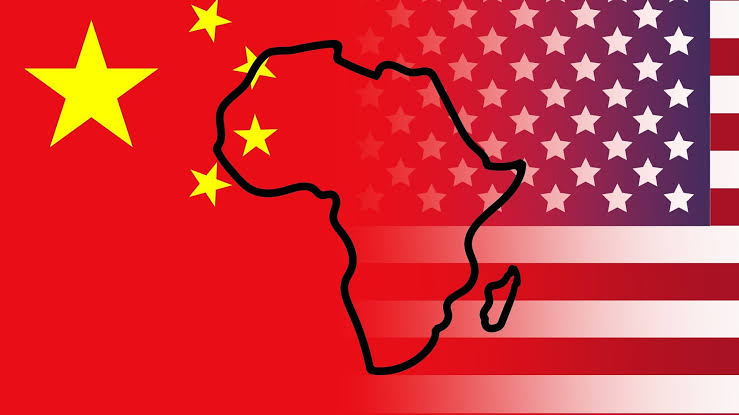In the labyrinth of geopolitics, Africa emerges as a coveted prize, beckoning global powers to vie for influence and dominance. Among the contenders, the United States, China, and Russia stand at the forefront, each wielding formidable resources and diplomatic prowess in their quest to secure a foothold on the continent. This comprehensive analysis delves into the multifaceted dynamics of the geopolitical contest, offering insights into the strategies employed by each nation to sway African nations in their favor.
The United States: Championing Freedom and Democracy
Amidst China and Russia’s encroaching influence, the United States boldly asserts its position as Africa’s beacon of freedom and democracy. With a longstanding commitment to fostering partnerships devoid of coercion, the US Commerce Secretary, Gina Raimondo, emphasizes America’s appeal as an ideal ally, offering opportunities aligned with African values.
During her inaugural visit to Africa, Raimondo’s rendezvous with Kenyan President William Ruto underscores the US commitment to mutual cooperation and investment in Africa’s prosperity. Despite recent setbacks, the United States remains steadfast in its endeavor to cultivate enduring ties with African nations, anchored on principles of respect, partnership, and mutual benefit.
Also, read; Black Atlanta Teen, Yves-Ann Comeau Accepted to 17 Colleges, Awarded $1M in Scholarships
China: A Strategic Juggernaut in Africa’s Development
As Africa’s single largest commercial partner, China wields considerable economic clout, propelled by the ambitious Belt and Road Initiative (BRI). Through extensive investments in infrastructure projects and bilateral trade agreements, China has solidified its presence across the continent, fostering economic growth and development.
With bilateral commerce projected to soar to unprecedented heights, China’s strategic footprint in Africa underscores its unwavering commitment to advancing mutual interests and strengthening diplomatic ties. However, criticisms linger regarding China’s opaque lending practices and concerns over debt sustainability, prompting African nations to tread cautiously amidst the allure of Chinese investments.
Russia: Resurgence of a Global Player
Amidst the geopolitical chessboard, Russia emerges as a formidable contender, revitalizing its engagement with African nations after a three-decade hiatus. Through strategic investments, resource allocation, and diplomatic overtures, Russia seeks to reassert its influence in Africa, exemplified by the reopening of its embassy in Burkina Faso.
With a burgeoning portfolio of partnerships spanning trade, energy, and infrastructure development, Russia’s resurgence in Africa underscores its strategic imperative to diversify alliances and secure access to vital resources. Despite lingering skepticism, Russia’s overtures resonate with African nations seeking to diversify their partnerships and foster multipolar cooperation.
Conclusion: Navigating the Geopolitical Landscape
As Africa navigates the complex terrain of geopolitics, the contest for influence intensifies, with the United States, China, and Russia vying for prominence on the continent. Each nation presents a distinct vision and approach to engagement, rooted in divergent ideologies and strategic imperatives.
However, amidst this geopolitical tussle, African nations find themselves at a crossroads, tasked with charting a course that safeguards their sovereignty, fosters sustainable development, and maximizes strategic opportunities. As the global contest for Africa unfolds, the stakes are high, and the implications far-reaching, underscoring the imperative for African nations to navigate this complex landscape with prudence, foresight, and strategic acumen.

